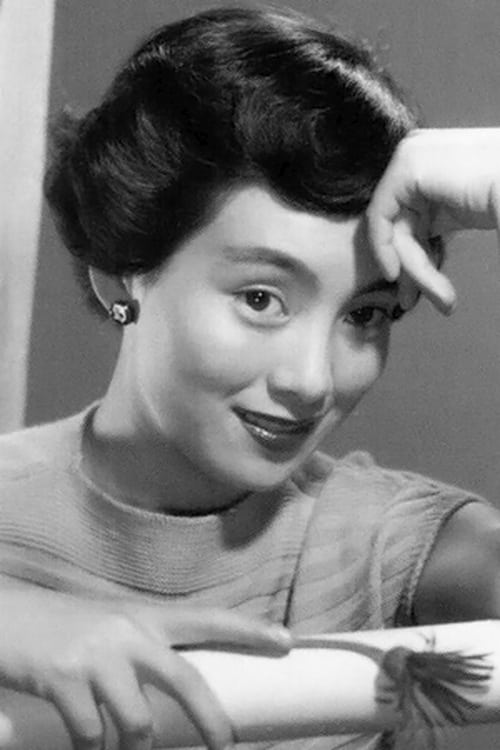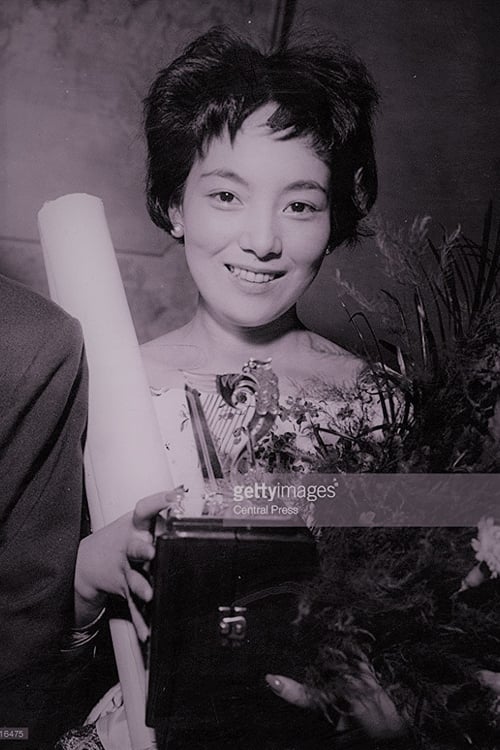Sachiko Hidari
Birth : 1930-06-29, Toyama, Japan
Death : 2001-11-07
History
From Wikipedia, the free encyclopedia.
Sachiko Hidari (左 幸子, Hidari Sachiko, 29 June 1930 – 7 November 2001) was a Japanese film actress. She appeared in 42 films between 1952 and 1995. At the 14th Berlin International Film Festival she won the Silver Bear for Best Actress for her roles in Kanojo to kare and The Insect Woman. In 1977, she directed and starred in the film The Far Road, which was entered into the 28th Berlin International Film Festival.
Description above from the Wikipedia article Sachiko Hidari, licensed under CC-BY-SA, full list of contributors on Wikipedia.

Hanako Mihara
Sukiyaki can be viewed two ways, a popular Japanese cuisine or a gathering of a family. This heart-warming comedy takes place in Yokohama, where the Mihara family owns a restaurant called “Boston Grill”. Experience the ups and downs of this family and learn how they deal with the everyday problems they are faced with during difficult times.

Won Jury's Special Award at the Turin International Film Festival of Young Cinema 1993

Chieko
Yoshinori sells plots of land in a cemetery, and is involved in a stale ten-year-old marriage with bored housewife Atsuko. When Atsuko makes a male friend at her leather-working class, Yoshinori has a fit. This is on top of the myriad of odd clients that he must appease.

Osamu's Mother
A fictional account of the life of Japanese author Yukio Mishima told in four parts. The first three parts relate events in three of his novels: The Temple of the Golden Pavilion, Kyoko's House, and Runaway Horses. The last part depicts the events of 25th November 1970.

Suicide has long been used as a form of social protest in Japan. In this film, set in 1703, samurai culture is being transformed by the emergence of a new merchant class. Elements of the social contract are beginning to unravel, and some unscrupulous people took undue advantage of these changes before the social order was re-created. In this story, a rich merchant gives his clerk an I.O.U. instead of wages. When the impoverished clerk presents the paper to the merchant at the agreed upon time asking for payment, the man flies into a rage and pretends he never wrote it and claims the clerk is trying to defraud him. Then he sets his henchmen on the clerk to administer a beating.
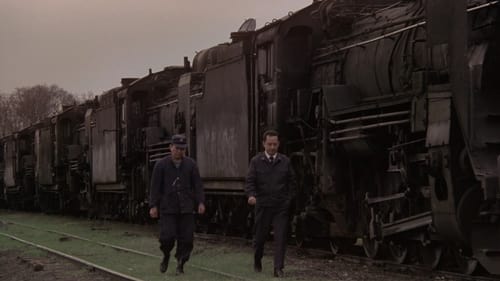
Producer
Set in the time of steam locomotives and covering a period of almost 30 years, this sensitive film tells the story of the wife of a railroad worker in the northern part of Japan. The ferocious local class restrictions work to keep her husband in his place, as does his lack of education.

Set in the time of steam locomotives and covering a period of almost 30 years, this sensitive film tells the story of the wife of a railroad worker in the northern part of Japan. The ferocious local class restrictions work to keep her husband in his place, as does his lack of education.

Director
Set in the time of steam locomotives and covering a period of almost 30 years, this sensitive film tells the story of the wife of a railroad worker in the northern part of Japan. The ferocious local class restrictions work to keep her husband in his place, as does his lack of education.

Mother
First live action adaptation of Keiji Nakazawa's manga.
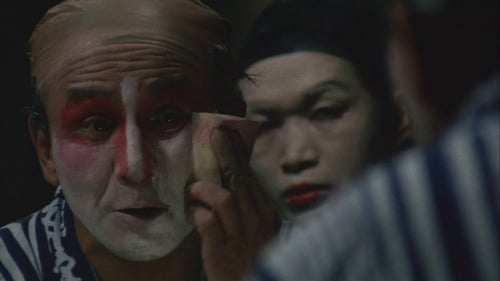
Sakie Togashi
A war widow determined to clear the name of her disgraced husband, who was court-martialed for desertion and executed. Official records have been destroyed, and the ministry that distributes benefits continues to deny her a pension. Twenty-six years after the war, she seeks out four survivors of her husband's garrison. Each tells a dramatically different story about her husband's conduct, but she is determined to learn the truth.

With his penultimate film, Uchida revisited one of his popular prewar titles, 1936’s Theatre of Life, an adaptation of Shiro Ozaki’s eponymous novel. Three-time Seijun Suzuki collaborator Goro Tanada wrote a gangsterized adaptation of Ozaki’s story for Uchida at a time when the yakuza had eclipsed the samurai genre as Toei's main cash crop. Protagonist Hishakaku murders a man in a quarrel over a barmaid and goes to jail. In his temporary absence, his girlfriend Otoyo, a former geisha, falls for Hishakaku’s brother, inciting a dangerous love triangle that, in typical yakuza fashion, ends tragically.

Tora Yoshida
The story of a selfless mother and her family throughout the decades, from th 1920's to the 1960's.

A young Japanese woman comes to Peru to marry a man she has never seen in this somber drama highlighted by cultural differences. Her husband is a first-generation Japanese and both are bound to the time-honored tradition of arranged marriages. Bringing her child from a previous marriage, she finds her new husband living with Andes Mountain Indians and working for an archaeological expedition. The man and her boy take to each other, and the woman begins to study and understand the lives of the Indians. When her husband is killed mining for Incan treasure, she uses the money sent by the state to stay and help the villagers whom she has come to love.
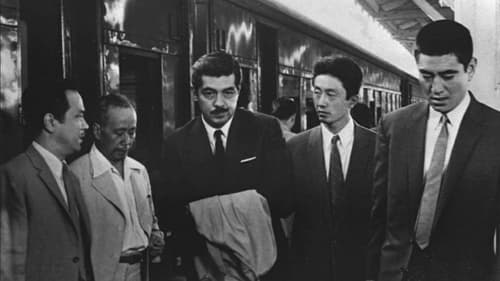
Yae Sugito
Three robbers escape with loot from a heist before one of them kills the others. Their corpses wash up near the aftermath of a maritime calamity, provoking a policeman's interest.

Osono
A young woman begins murdering all those responsible for her ailing father's condition. Because the girl is so outwardly sweet and innocent, the detective looking into the deaths does not suspect her.
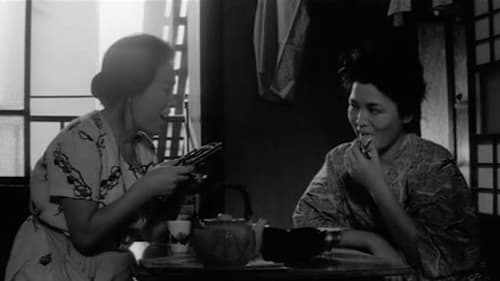
Tome Matsuki
A woman, Tome, is born to a lower class family in Japan in 1918. The title refers to an insect, repeating its mistakes, as in an infinite circle. Imamura, with this metaphor, introduces the life of Tome, who keeps trying to change her poor life.

Naoko Ishikawa
As her husband Eiichi becomes more entangled in his life as businessman, Naoko looks for ways to expand her own life even as her husband's life shrinks in scope and intimacy. She finds new interests, new love, and a greater sense of her place in the world.

A conscript from a poor background writes the Emperor asking if he can stay in the army when his service is up.

Movie directed by Kunio Matoi
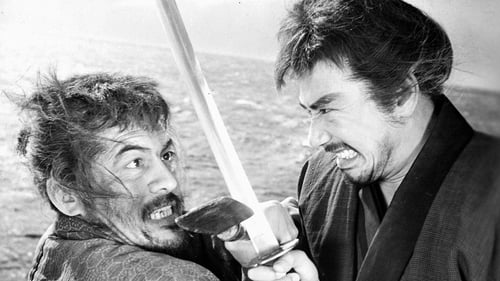
Orin
This suspense drama set in the mid 1700's depicts the plan of the Tokugawa rulers to send a number of homeless men to a remote island Sado to perform forced labor. Living conditions on the island are terrible and the men soon become rebellious. Based on a short story by Seichō Matsumoto.

Osei

Japanese "kayo" film centered around the song "Dare yori mo kimi wo aisu" by Kazuko Matsuo.
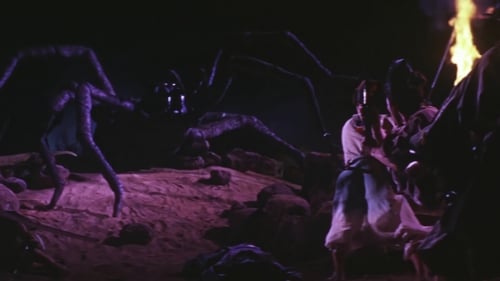
Ibaragi-dôji / Ibaraki-dôji
A demon-faced monster seeking revenge appears in the forms of a gigantic ox and a huge spider! The young Genji warrior protects the Fujiwara Clan and the beautiful lady in tragic love! A grand visual epic told with mesmerizing extravagance!

The first story concerns an attractive young woman who works in a Tokyo nightclub. Her plan for a solid financial future has a double whammy. In the second story, a beautiful young woman is employed by an unscrupulous real estate agent to convince male clients to invest in worthless property. The last story is about a widowed geisha who has no real financial worries and who falls in love with a forger.

Otaki

The inventor of a ground-breaking glue, Sanada, becomes rich thanks to his discovery a high executive in his company. Because of this promotion, his world is changing completely : his wife behaves like never before, considering she's now rich and has the right to do whatever she wants, even having an affair. (Also occasionally known in English as “Overflow”)

A lifetime story of a woman who stubbornly lives in a poor mountain village in post-war Japan.
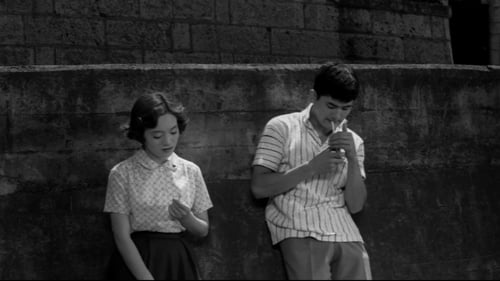
Кэйко Мидорикава
Nobuo is a hot-headed hoodlum fresh out of reform school who struggles to make a clean break with his tearaway past.
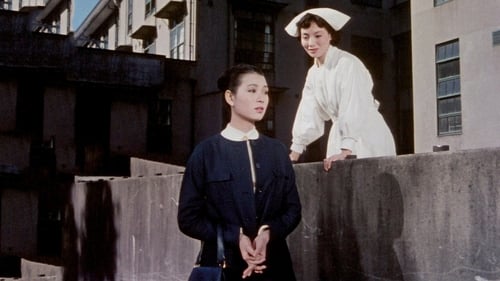
Gin Ishiwata
The story revolves around a young man appointed to rescue a troubled hospital who must choose between two women, a dedicated nurse or a spoiled rich girl.

Hideko Sugimoto / Yûko Sugimoto
Shokichi, the owner of the clothing store, lives with his daughter Hideko and plans to open an art gallery. One day, Hideko led a handsome art student, Shohei and a poor painter, Sohei. Sohei’s painting was praised by a great printer at the completion ceremony of the art gallery. Since he became successful as a painter, but he looked quite indifferent. Around the same time, Shohei’s sister brought Sohei’s pictures to the gallery and Shokichi noticed that she was a daughter of his first love.
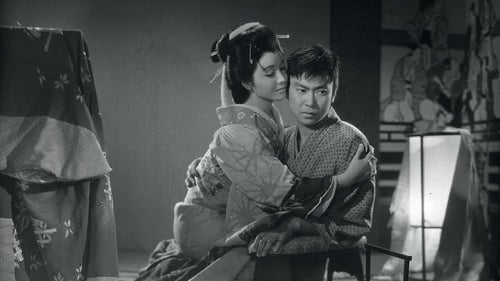
Osome
Saheji, a man-about-town, gets stuck at a high-class brothel when he can’t pay the bill. He makes the best of his situation by performing various tasks amidst the tumult of the end of the shogunate—but always by making sure to get a “commission” for his troubles.

Japanese drama film.

With the background of the Battle of Okinawa, he draws a semi-documentary image of each individual person under an unusual psychological state of war. Furukawa Takumi of “Backlight” is adapted and directed by Daiichi Ishino. Filmed by Yoshio Mamiya, “Smuggling of the body”. The main performers are Sachiko Sakai since the “Zoi Family”, Hiroyuki Nagato of the “Next door bride”, Shoji Yasui of the “Sentimental wife”, Takatoko of “Crying, the last Japanese fighter”, “Blue angry” Noriko Katsura, Shinzo three of "actress (1956)", Masao Oda, Nobuo Kaneko, Toru Abe, Hiroshi Nihonyanagi, Misako Tsubouchi.

Japanese drama film, originally released in two parts.

Minami Minami
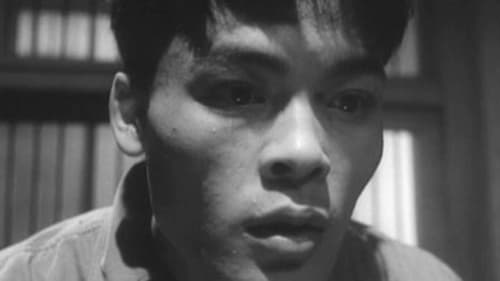
Kaneko Nagai
Police beat a murder confession out of four innocent men who are then sentenced to death. Based on a true story.

Chief editor Shirou Kanzaka (Hisaya Morishige) of Sankei Publishing Inc. is being tried for embezzlement and the staging of Chiyo Umehara's suicide. The victim is a woman who's said to have had sexual relations with the defendant. Four intertwined witnesses; a critic, Shirou's employee, a singer, and his wife, are all called to the stand. His destiny now lies in their hands.

Ruiko Aso
Haruki Murakami is a successful family man and the head of a camera company. Unbeknownst to Murakami, his arrogant son oscillates between a mistress and a new lover who sings at a nightclub. When Murakami’s disabled daughter befriends the mistress, the affair throws the family into turmoil.

Yuki
Japanese crime film.

Okiku
Japanese drama film.

Shizuka, Eiichiro, and Mineko, their father and son, live modestly in a certain suburb, leading a dreary but happy life. Eiichiro is troubled by Shizuka's desire to live together in familiar Tokyo. Mineko is the exact opposite of Eiichiro. A literary masterpiece depicting the fateful sorrow and humor of a mother and child

Three young women make a suicide pact, but they grow to have a better understanding of themselves.

Asako
An ethical, young tax collector new to his area encounters increasingly absurd individuals and groups coping with their post-war woes.

A reporter Takuo, who is sleeping in the newspaper room of the Maichō newspaper company, receives a sudden report from a reporter that the missing Akiyama JNR president was found dead.
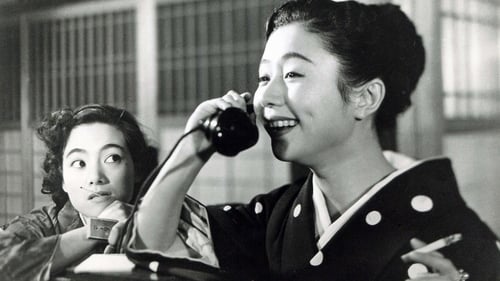
An Inn at Osaka, rarely seen outside Japan, follows the story of an insurance company executive from Tokyo, Mr. Mito, who is demoted to the Osaka office. He takes a room at a small inn and tries to rebuild his life. Notable for its exquisite framing and cinematography, An Inn at Osaka allows its complicated plotlines to disappear behind the minutiae of penury and humiliation that Mito and others suffer during the post-war economic and social reconstruction.

Moyoko

Kingoro Yanagiya's 100th film.
